10 Self-Motivation Hacks For Creative People That Actually Work
Motivation is a tricky thing. If you’re a creative person like me, you’ve probably had this experience before: a big deadline is coming up, and you know you should be working on it, but when you sit down the ideas just aren’t flowing. So, you start scanning the internet for the answer: watching motivational videos and reading positive affirmations trying to find some motivation, but nothing works.
In my opinion, motivational videos and positive affirmations are nice, but they’re not enough to get you going with a real enthusiasm or keep you going when you get bogged down. That’s why I’ve compiled this list of hacks that I use to get working and keep working when the motivation just isn’t there.
Here are the 10 self-motivation hacks that actually work for creative people:
1. Take a mixture of productive and unproductive breaks from your work
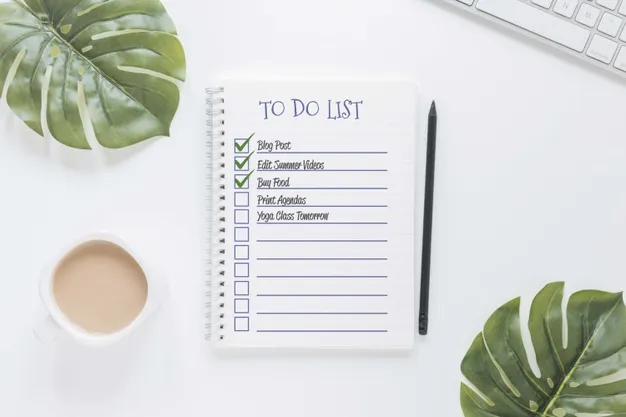
Take a ten-minute break to do whatever you feel like doing most: play a game on your phone, scroll through social media, play with your pets, whatever it may be. Then work for a while longer, and when you start feeling sluggish again, take a break to do something productive. Cross something off your to-do list! Maybe clean up a small area of the house, or make that call you’ve been putting off.
I find that doing something productive while taking a break from my projects gives me a sense of accomplishment that gives me a boost and helps me stay energized when I return to the project at hand. Give it a try!
2. Move around and stay active
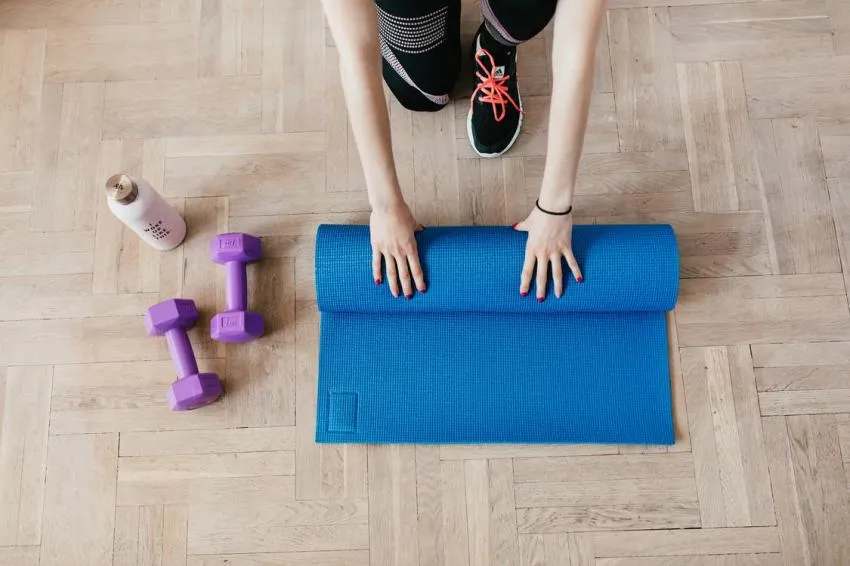
Lots of creative people find themselves stationary for hours at a time while they work on their projects. Getting up and moving around can help stimulate the creative flow, and keep you from getting a block. Stand, stretch, maybe go for a light jog, or just put on some good music and dance around for a while.
Personally, I hate running, so I’ll get up and do some light stretching, turn my music up, and then dance around my living room for a few songs to get my energy up. However you choose to do it, give your body a chance to unwind and get some of the tension out. At the end of the day, you’ll feel a lot better.
3. Allow your mind to wander a little

If you’re getting bogged down on a project, you may notice your attention start to wander. Instead of fighting that urge, or punishing yourself internally for getting distracted, indulge it for a little while. See where this new line of thinking takes you; just don’t get lost down the rabbit hole. After a few minutes, set aside the new idea, maybe write it down or sketch it out, but move on from it. Try to shift your focus back to the project you were working on. You may even find the diversion has given you some inspiration for your current project!
I get distracted from my work all the time if I’m not deep in the creative flow, and I used to beat myself up for losing time. But then I started practicing meditation, and one of the things I found most interesting is that when you lose focus in meditation, you’re not supposed to judge yourself for it. It’s natural to be distracted by new and interesting things. Once I started allowing myself to be distracted without beating myself up for it, I found I was more excited about going back to work on my project. Try out this tip if you have a hard time dealing with distractions.
4. Listen to some music in the background
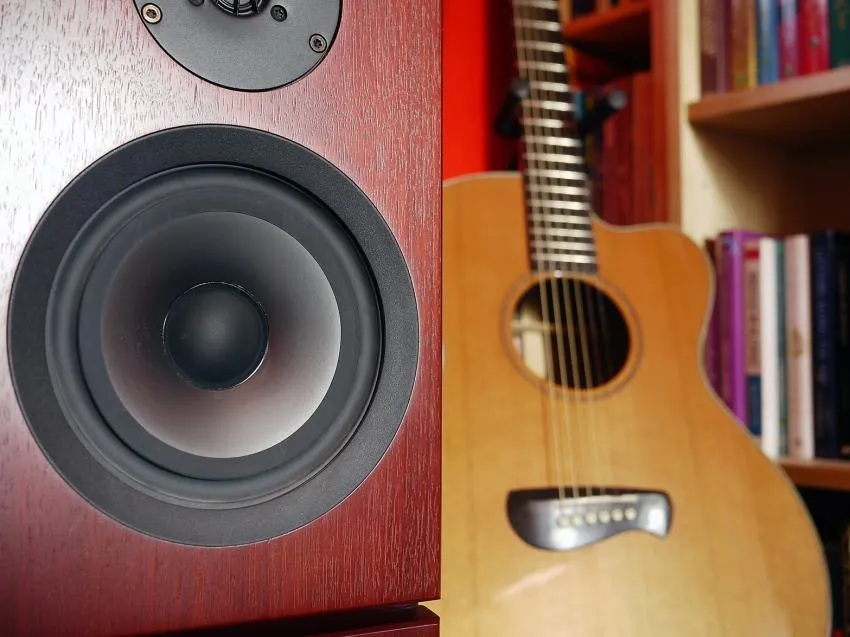
This can be whatever form of media you prefer from music to movies, TV shows, and YouTube videos: whatever it is, just put something on at a low volume and let it play in the background. Our lives are busy, and our brains are used to having input and stimuli, especially now in the digital age. If you’re a music fan, listen up! A 2017 study found that listening to upbeat music boosted people’s ability to use their creativity when compared to working in silence. The research concluded that listening to music in art class helped students to let go of the inner critic; they stopped judging their work as they made it and just went with the flow. So, while people used to say that you need silence to focus and work on projects, these days we’re finding that music is actually better than silence, at least for creative projects. Who knew?
With that being said, you can’t let distractions keep you occupied for too long. If you’re like me, it’s nearly impossible to focus on just one thing at a time. I always have something playing in the background, but be careful about what you choose to put on. If you’re going with a movie, TV show, or YouTube Video: I recommend something familiar, maybe something you’ve seen or heard multiple times, so your brain won’t be focused on trying to analyze it.
5. Schedule more time than you need to complete a project
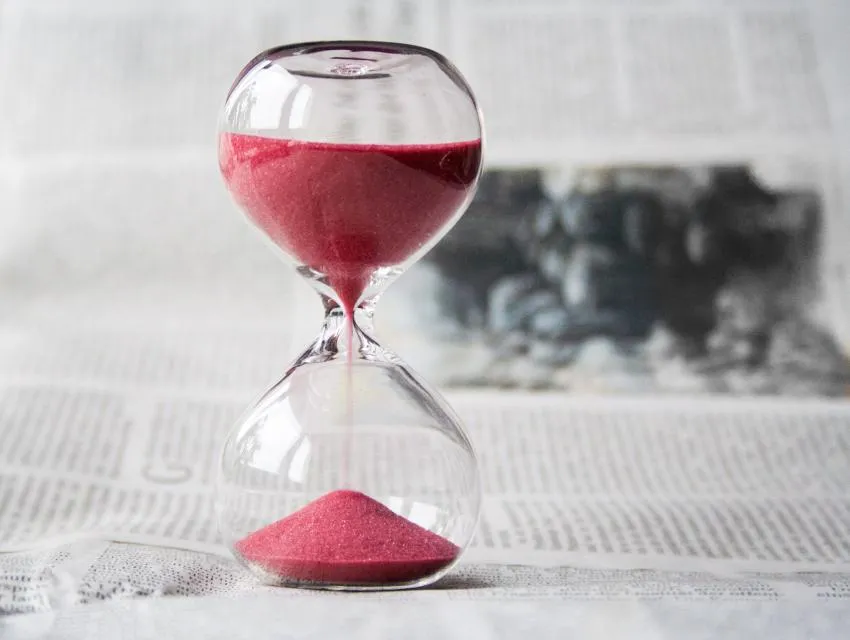
This tip may not work if you have a hard time sticking to a schedule, but hear me out. Everyone tells you to schedule a time to work and stick to it, but guess what? Life is complicated. Things get in the way, and sometimes you need to take a step back from your project to deal with something else. Having to step away a lot can take the wind from your sails, and, in my experience, having to step away from a project when it’s not finished can cause anxiety.
I end up thinking about the project and the interruption simultaneously and can focus on neither one properly. So, my advice is to cheat. Give yourself way more time than you think you need. It’s a win-win scenario: either you needed the extra time and were able to use it, or you didn’t need it and got to finish the project early and stop worrying about getting it done, freeing yourself up some time to relax or time to focus on the next project.
6. Decorate your workspace
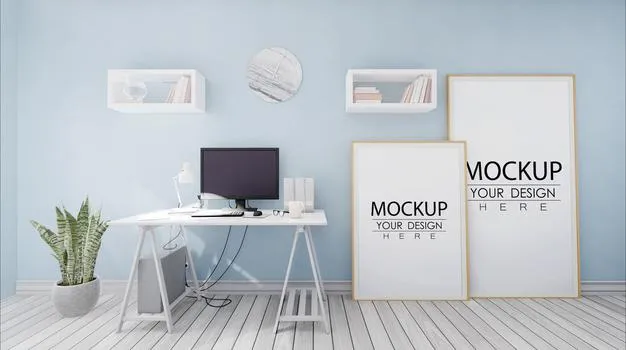
White walls and blank tables are great starting points, but as you continue to work on projects, you may find you want some familiar or interesting things around to spark your creativity. Inspiration comes in many forms, and if you’re struggling to find the next step in your creative project, it’s nice to be able to simply look around the room to find it.
I recommend putting up a variety of images and quotes around your walls, and some interesting decorative pieces scattered around the flat surfaces. Hang up some of your favorite past projects as well, to remind yourself of the awesome work that you are capable of!
7. Set a space for brainstorming or design layout
This space can vary depending on what your project is, but a corkboard is versatile enough for use in the planning of various projects. If you’re a writer, you might want to use it as a storyboard, where you can lay out plot points and character development and visually see where each event should fit within your story. If you’re an artist, you may want to use the corkboard to compare samples of different colors, fabrics, textures, etc that can be used in your piece. Overall, a corkboard is a great way to layout plans for projects without taking up more table space.
Personally, my corkboard is a collage of many different things. I have a couple of patches pinned up there that I’ve been meaning to sew onto my denim jacket for about a year. I have fabric swatches and a primitive design of an outfit I wanted to make before I lost my sewing machine in the last move. I also have short snippets of dialogue and plot points written down on post-it notes because I thought they were funny and wanted to keep them out where I could see them often. Whatever your creative passions, fill up your corkboard with inspiration!
8. Keep your creative space clear of garbage and debris
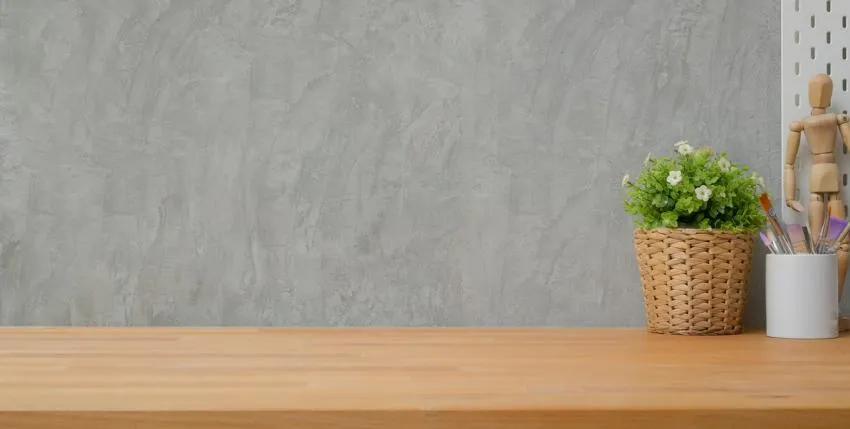
It’s important to make sure your space doesn’t become overcrowded. Overcrowded surroundings can make us feel cut off and can restrict creative flow. Garbage and debris can build up fast, depending on what you do in your work area, and it’s important to keep your area clean and open. Keeping some of your available surface area free of any and all debris creates a resting spot for your eyes and your mind. Having a blank space to look at can make the mind more receptive to new ideas and inspiration.
Whenever I leave garbage in my creative space, whether it’s an empty soda can, leftover food, or just a used napkin, my creative flow is blocked. I find it hard to think clearly and get my ideas out when I’m distracted by a messy workspace. I recommend taking 5-10 minutes to tidy up each day before you start, so you can have room to think and create.
9. Avoid harsh lighting
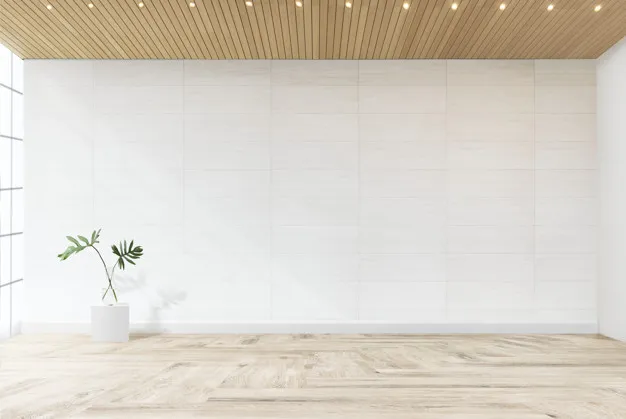
Natural light is great for creativity, but not everyone can work in an office or studio bathed in natural light. Whether you’re a morning person or a night owl, it’s important to avoid harsh light, especially from screens. These days it’s nearly impossible to avoid screens entirely, and prolonged use can strain your eyes and give you headaches. Most people will recommend taking regular breaks from your screen to give your eyes a rest, but when you’ve hit a strong vein of creativity, it can be detrimental to step away. You can lose your train of thought and get stuck back at square one.
If you’re bound to working on a computer screen, I recommend filtering out the blue light, which will help reduce stress and fatigue in your eyes. You can do this by buying a blue-light blocker, or by downloading an app that changes the color of the light emitted from your screen. The app f.lux, lets you customize the color and intensity of light emitted from your screen, and even has a special setting for reducing eye strain.
10. Keep yourself hydrated and well-fed
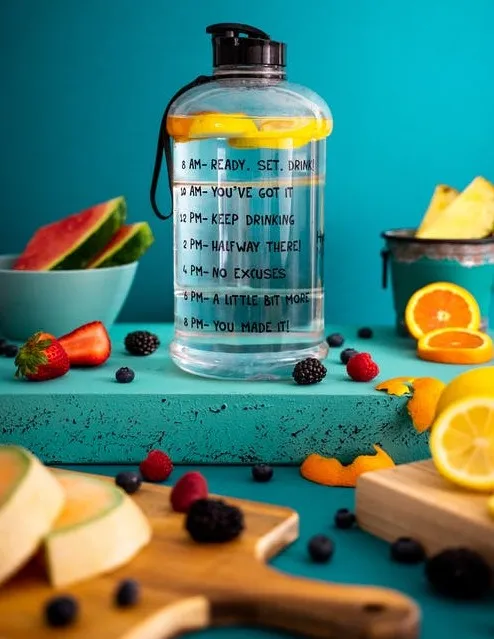
Keep a large water bottle and some snacks near you while you work and drink the water regularly. It can be easy to get caught up in a project and forget to drink for hours if you don’t keep something nearby, and while energy drinks can give you a boost if you don’t supplement it with plenty of water, you’re going to crash after a few hours. Dehydration and a poor diet can sap your energy quickly and steal your motivation to complete a project.
If you don’t already have one, I highly recommend getting a large water bottle that closes tightly and securely. Keep your water bottle and some healthy snacks on hand, and you’ll find you can work on your projects at a better place and for more hours a day.
Finding the motivation to start a project and continue to work on it for long hours can be difficult for creative people. We like to follow our inspiration and spur-of-the-moment ideas, but the real world is full of deadlines and restrictions that can block up your creative flow. These tips have made a night and day change in both the amount of work I am able to get done in one sitting and my attitude while working on the project.
Maybe all of these tips won’t work for you, and maybe using just one isn’t enough to keep you going. So, experiment and try different things! I don’t use all 10 tips every time I sit down to work, but sprinkling a variety of these tips into my routine works wonders for my work schedule, and it can do wonders for you as well, so try it out! You won’t be disappointed.
Opinions and Perspectives
The combination of productive and unproductive breaks works surprisingly well
Taking productive breaks helps me feel less guilty about the unproductive ones
The advice about not fighting distractions has actually made me more productive
I was skeptical about the dancing breaks but they really do help refresh my mind
Regular hydration makes such a difference to my energy levels throughout the day
The suggestion about displaying past work makes so much sense for building confidence
The tip about avoiding harsh lighting made me realize why I got so many headaches
Creating a dedicated brainstorming space has really helped organize my thoughts
Movement breaks are crucial. I set a timer to remind myself to stretch every hour
The productive break idea is interesting but I find it hard to switch between tasks
I appreciate that these tips are adaptable. Not everything works for everyone
The advice about natural light is spot on. I moved my desk near a window and noticed immediate improvements
I tried the background noise suggestion but found podcasts too distracting. Instrumental music works better
The workspace decoration tip really resonates. My creativity flows better in an inspiring environment
The corkboard suggestion revolutionized my project planning. I can finally see all my ideas at once
Actually, I've had great success with the productive breaks. Crossing small tasks off my list keeps me motivated
I found the opposite about scheduling extra time. It makes me procrastinate more
The suggestion about displaying past work is great! Looking at my previous successes really boosts my confidence
This article really understands the creative process. It's not about forcing motivation, but nurturing it
I struggle with the mind wandering tip. Once I get distracted, it's hard to come back
The water bottle tip seems obvious but I always forgot until I got a huge bottle with time markers
Has anyone tried the productive break suggestion? I'm curious how it works in practice
The part about background music is so true. I've created specific playlists for different types of creative work
I've found that combining several of these tips works better than focusing on just one
These tips work great for freelancers, but what about those of us in traditional office settings?
My biggest challenge is keeping the workspace clear. I start organized but it becomes chaos so quickly
The tip about not judging yourself for getting distracted is really helpful. It's made me much more productive
Completely agree about harsh lighting. I switched to warm LED bulbs and my creativity has improved significantly
Does anyone else find it hard to get back to work after an unproductive break? I tend to get sucked into social media
I actually tried dancing during breaks like the article suggests and my coworkers think I'm crazy, but it works!
The blue light filter suggestion changed my life! My eyes don't feel nearly as strained after long working sessions
Not sure about decorating the workspace. I find too many visual elements actually decrease my focus
Anyone else struggle with the movement tip? I get so in the zone that I forget to move for hours
The corkboard idea is brilliant! I've been using mine for mood boards and it's completely transformed my workflow
I started implementing the hydration tip and it's made such a difference. My afternoon slump is practically gone
These tips are fine, but they seem pretty basic. I was hoping for something more innovative
Can totally relate to scheduling extra time for projects. Life always throws curve balls and having that buffer has saved me so many times
Interesting article but I disagree about background noise. I find complete silence works best for me when I'm trying to be creative
The part about letting your mind wander is spot on. I used to feel guilty about getting distracted, but now I see it as part of my creative process
I love how practical these tips are. The mix of productive and unproductive breaks really speaks to me. I've been trying this approach and it's amazing how much more energized I feel
